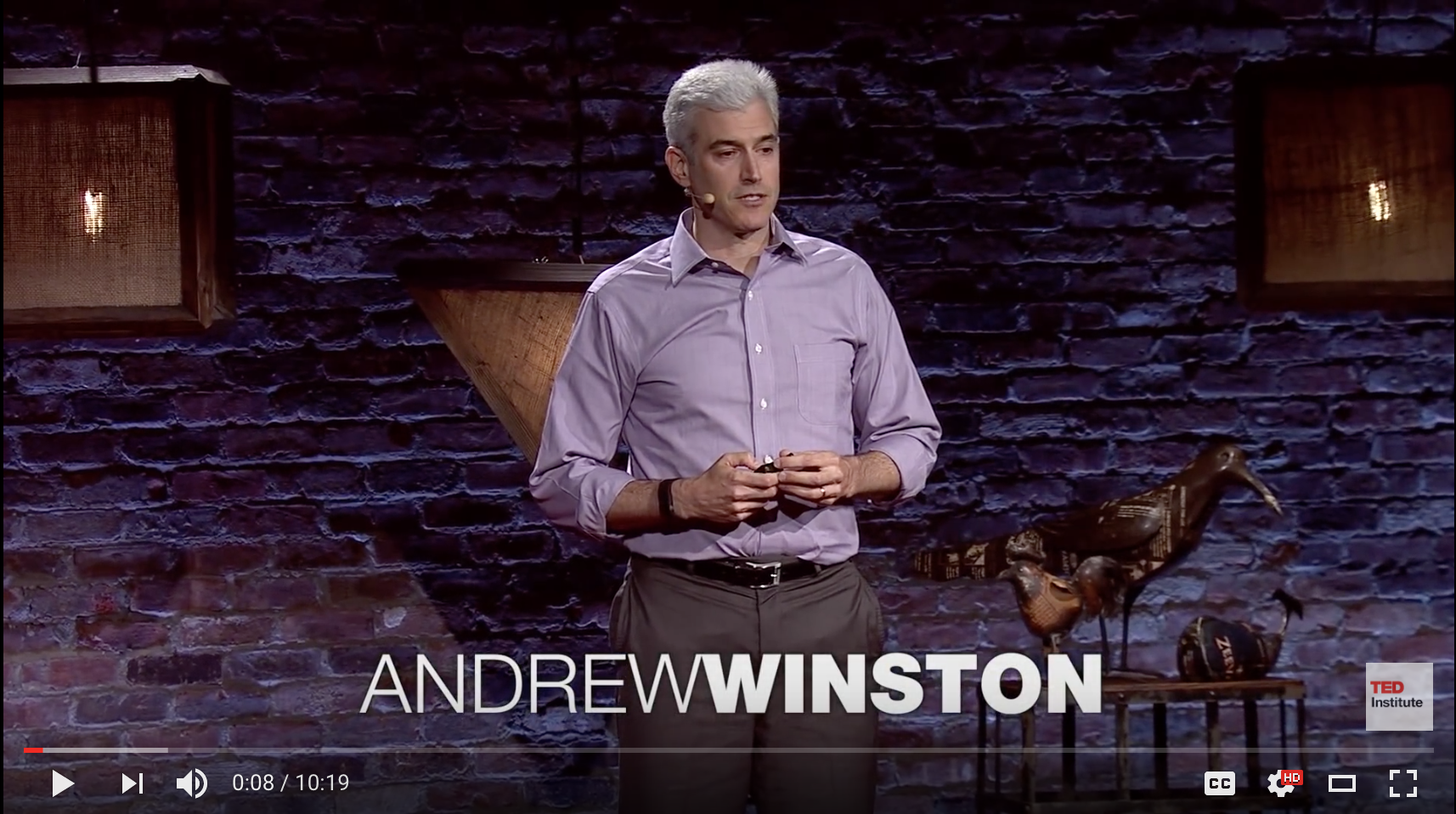 Casey is a Brand Manager for KSV. With years of experience in sustainability consulting, Casey brings outside expertise to KSV's marketing practices.
Casey is a Brand Manager for KSV. With years of experience in sustainability consulting, Casey brings outside expertise to KSV's marketing practices.
Andrew Winston is a sustainability rock star.
He is a consultant, author, speaker, and strategist, and the list goes on. His books Green to Gold and The Big Pivot are must-reads for anyone interested in the private sector’s role in addressing issues like climate change, resource constraints, and the role of business in society.
We had a chance to sit down with Andrew and talk energy, and the results were fascinating if not a little frightening.
Andrew, let’s start with an easy one—where do you see the future of the energy industry heading?
@AndrewWinston: 100% renewable. It seems far off to some, but it will happen faster than people expect. The majority of new energy put on the grid is already coming from renewables, so the grid mix is changing. More businesses and governments are adopting strategies and policies that move us toward the clean economy. Just think, 10 years ago, solar was arguably on the fringe of the energy system. And it was crazy to think that it could make up any appreciable portion of our energy mix. Five years ago, the idea of going 100% renewable was heretical. Today, countries, regions, and many multinational companies have mapped out plans to get there.
You talk about heresy in The Big Pivot. What are some of the heretical questions the energy industry should be asking itself today?
@AndrewWinston: Yes, heresy is a critical part of business survival. Businesses and whole industries have to be asking questions that challenge their core beliefs and practices all the time. Because the wackiest ideas quickly become non-heretical—they become the norm.
There was a time that Blockbuster could have been Netflix. But at first, streaming video was too slow and they didn’t have the foresight to see what it could become. There were technology hurdles to overcome, sure. But you could draw a line projecting what would happen to processor and Internet speeds from 2000 on and say, “Of course streaming video will become an important part of this business.” Netflix took over that future while Blockbuster went extinct.
So the energy world has to start thinking, “What can make us obsolete?” “Could storage play a considerable role in energy systems?” “Could the grid be mainly distributed?” All the seeds of that future are basically here already.
And it will only continue to get better and more advanced.
In your TED Talk you talk about what these questions could mean for the energy sector. What would the kind of shift you are describing look like?
@AndrewWinston: Well, at the macro level, the sector of the economy that just sources and provides energy is likely going to be much smaller.
If you look at the top of the Fortune 500, the energy sector stands out. Besides Walmart, energy and auto giants are the world’s largest companies. As we move to a clean energy economy, that is going to change. We’ll be going from a fuel with a multi-step, complex value chain to one where—after installing a turbine or solar panel—you get basically zero-cost energy. Zero-cost means nobody gets paid. That seismic shift has a lot of implications, but mostly it means trillions less in revenue for the sector. The current model is dying, and the companies that are ready and able to innovate and adapt—they’ll survive.
That sounds scary. Change tends to be really hard in large companies.
@AndrewWinston: It is. But maybe the big guys aren’t where the change comes from.
Again, Blockbuster could have built Netflix. One of the big hotel chains could have created Airbnb. It is unlikely that the real industry-altering innovations will come from the entrenched players. If they want to survive, these companies need to be hiring innovative thinkers and advisers to watch these small market actors closely and then be ready to adapt (or acquire).
Our conversation with Andrew Winston ranged over topics from grid resiliency to helping low-income and moderate-income people get the help they need from their energy providers. Keep an eye out for insights from those topics and more as we continue our conversation with Andrew in future EnergyWire posts.
Until then, cheers to a little heresy and innovative thinking.



